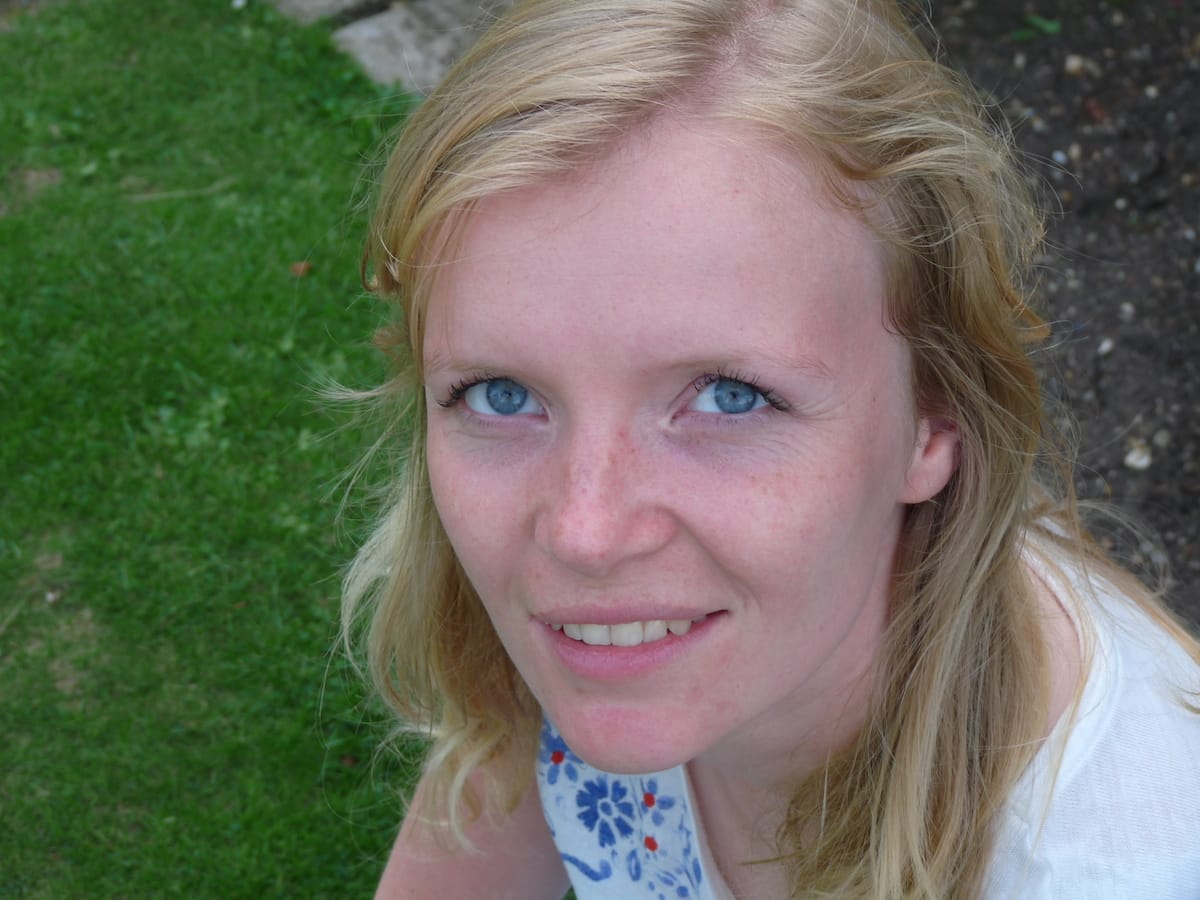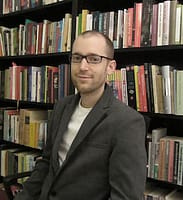
Network connectivity in the ageing brain: An Interview with Linda Geerligs

In September, I started working in an office at the Department of Experimental Psychology. My desk was formerly occupied by a young researcher called Linda Geerligs. It was interesting to hear the occasional anecdote about this unknown girl. From these stories I imagined she’d been quite a talented and successful PhD student. When I attended her PhD ceremony in January 2014, this suspicion was confirmed. I saw a modest, eloquent young researcher that answered difficult questions calmly and concisely. Indeed, she received her PhD degree with the distinction ‘cum laude’.
Linda Geerligs’ main research interest is the neuroscience of the healthy ageing brain, which she has been investigating throughout her PhD and postdoc research. After completing the BCN research master, she went on to do a PhD at the Experimental Psychology group of the University of Groningen, under the supervision of Prof. Monicque Lorist and Prof. Natasha Maurits. This was the time that her interest in the ageing brain was triggered. She is currently continuing this line of research as a postdoc at the Cognition and Brain Sciences Unit in Cambridge, for which she received a Rubicon grant from the NWO.
What was your PhD-research about?
The unifying theme of most of my work is the investigation of how brain function changes with age and how these changes are related to cognitive performance in older adults. Initially, I looked at the effects of ageing on selective attention. Older adults have more trouble ignoring information that is irrelevant in a given situation (such as background music), which leads to other problems in attention and memory. We found that the communication between the posterior (visual) and frontal parts of the brain played an important role in this ability to suppress irrelevant information.
This finding sparked my interest to study functional connectivity; I wanted to understand more about how different brain regions communicate and cooperate, and how ageing affects these processes. In the brain, we can distinguish a number of functional networks; these are brain areas that have high connectivity with each other but limited connectivity to other networks. Each network is involved in specific functions, such as vision, audition or attention. Interestingly, most of these networks can be identified regardless of what people are doing, whether they are actively doing a task, resting or even sleeping. We have shown that these brain networks become less distinct as people age: connectivity within networks decreases with age, but connections between networks increase. In addition, we found indications that this decrease in connectivity within brain networks is related to a decline in cognitive functioning in older adults.
Your PhD project has been described as complex and state-of-the-art. You have used mathematical tools such as graph theory, independent component analysis, and network analysis to answer your questions. Why did you choose to do so? How have these methods allowed you to answer novel research questions?
The inherent complexity of the brain means that it is impossible to capture an informative snapshot of its activity, or interpret what that activity might mean, with any one, singular method. The complex nature of brain activity also means we don’t necessarily know which portions of the activity are relevant or irrelevant to the questions we’re trying to answer. For example, in the past, fluctuations in fMRI signal intensity that are not evoked by a stimulus were generally discarded as noise, until it was shown that coherent fluctuations can tell us something about the communication between brain regions. We need to use varied and nuanced research techniques if we are to correctly identify the important aspects of brain activity and not inadvertently ignore it. In addition, different techniques have their own advantages, as well as their own set of assumptions about the data, which is why stronger conclusions can be drawn when different techniques converge on a particular result. That is why I think we need to use a combination of different techniques to be able to move closer to a true understanding of brain function.
Many PhD students appear to have moments of despair: “I am never going to finish this in time” or “Who am I to believe that I can make progress in science?”. Have you experienced these feelings too, or has it been easy for you all the way through?
I think almost all PhD’s consist of many ups and downs and mine was no exception. A challenge for me was to accept the unpredictability of the scientific process. At times I felt the project was not going anywhere, but usually these moments of frustration occurred right before I found a solution to the problem I was struggling with. I was lucky to have very supportive supervisors who helped me in these difficult periods. Another thing I was struggling with (and still am) is that in applying new methods of data analysis, there is never an optimal approach. There are many choices you make along the way, and there is often no consensus in the literature about which choice is the best. You just have to make the best, most informed choice you can and learn to deal with some ambiguity.
How did you handle these moments of doubt?
For me it was important to be able to talk about these issues with my supervisors and colleagues. Also, over time, I have learned to have a little more faith in a good outcome.
Are you proud of what you have achieved? What would you have done differently if you had the choice?
That’s a difficult question to answer. In many respects I am proud of what I achieved. When I started my PhD I never thought things would turn out so well. With hindsight, there are many things I could have done better or more efficiently though. Most of all I think I could have benefitted from collaborating more with people who were experts in the techniques I wanted to apply. Even so, I think making mistakes and doing things over are important steps in the process of learning to become an independent scientist, and have enabled me to build up the confidence and skills to tackle the wide range of problems that I encounter in my day-to-day research.
How did you gather the necessary expertise around you to accomplish your goals? Did you network actively or did these contacts come naturally?
I was very lucky that Dr. Remco Renken, who is an expert in fMRI data analysis, was willing to get involved in the project. He helped me tremendously in the methodological aspects of my PhD. Also, because of contacts my PhD supervisors had made, I was able to visit a lab in Norway for a month, with a NENS stipend. There, I learned a lot about programming in Matlab, which is a skill that was invaluable in the rest of my PhD and as well as my postdoc. At conferences, I did network actively to get in touch with people from my field who were working on similar topics, and even though these contacts did not result in collaborations at the time, it helped me to gradually build up my network and it was a good skill to develop for future use.
What are you doing at the moment?
I am currently working as a postdoc at the Cognition and Brain Sciences Unit in Cambridge, doing research that builds on the findings from my PhD. My postdoc position is part of a larger project on ageing, called the Cambridge Centre for Ageing and Neuroscience. I am able to use data from across the lifespan of nearly 700 people to get a better understanding of how ageing affects brain function and how this relates to cognition. I am currently working on a project investigating whether the effects of ageing on the communication between brain regions are dependent on the task that the participants are performing. I am also very interested in looking at the dynamics of brain function. Recent studies have shown that even on the scale of seconds to minutes, there is a lot of variability in the communication between brain regions, so I am looking at how ageing affects these temporal dynamics and how this impacts older adults’ cognitive performance.
How has your PhD prepared you for your current research? What skills would you advise other PhD students to acquire?
Because my PhD and postdoc research are so closely related, the transition to the current position was not difficult. However, even when the connection between your current and future research is less obvious, there are many transferrable skills that you can develop during any PhD which are important for any future job, such as writing, project management, and presenting yourself and your research. I would encourage other PhD students to find the parts of their project that really interest them and try to develop their own ideas about where they would like to go with their research (as much as possible).




